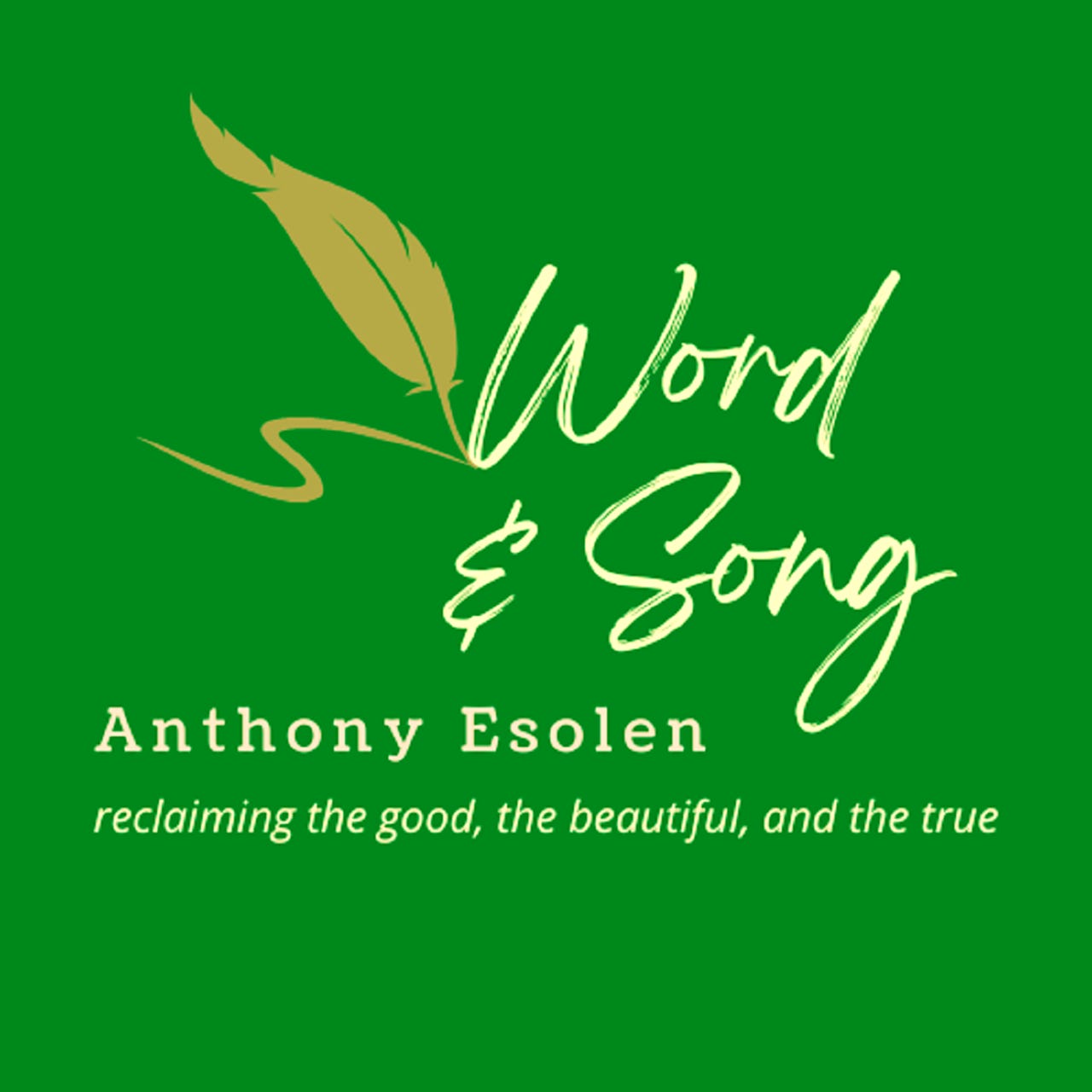"Now the Green Blade Riseth"
Manage episode 412825626 series 3540370
We are continuing our Easter discount through April 21st, with 20% off all upgrades, gift, and new subscriptions at Word & Song. May God bless you all during the coming week and through Eastertide.
I’d like to set the scene for our Hymn of the Week by going back to the days shortly before Jesus was to die. He had come to Jerusalem for the last time, and because it was the great and holy feast of Passover, Jews from all over the Mediterranean world were in town also. They were sometimes called “Greeks,” not because they had Greek ancestry, and not because they read Greek poetry and philosophy, though they might well have done that. The philosopher Philo of Alexandria certainly did. They were called “Greeks” because Greek was their native language. That was, after all, the common tongue for business, government, and education in the eastern part of the Roman empire, rather like what English is for Europeans now. They had heard about Jesus, and they were eager to meet him, so they went to the gregarious Andrew and Philip — notably, two apostles with Greek names. So Andrew and Philip were going to make the introduction. But if the Greeks or anybody else were expecting Jesus to become the Jewish leader they all hoped for, to take on the world as princes do, Jesus’ own response must have dashed those hopes. The hour for his glorification was coming, he said, and then, “Unless a grain of wheat falls into the ground and dies, it abides alone, but if it dies, it bears much fruit.”
Consider it a law of love. If you insist on things your own way, if you want to save your good pleasure and your wealth and even your life at all costs, you will lose it all, because you will never learn the secret of love that way, which is the secret of life. But the grain of wheat can show us the right way. It falls into the earth, and it bursts its shell, and in so dying it puts forth the first green shoot of a new life, a life that the inert grain never had and never could have, so long as it remained only what it was. And in our hearts, I think, there is a cold little corn of self, that never comes to life unless and until it allows itself to be broken. We can’t break it by our own power. That comes from God.
Easter Rate on Upgrades & Gifts
And we can hope that God will raise us up, because and only because Jesus, whom those Greeks wanted so much to talk to, is both the grain of wheat that dies and rises again and brings forth fruit in abundance, bread to feed all the world. That’s what the author of our Hymn of the Week had in mind. His name was John MacLeod Campbell Crum, and he was an Anglican priest, for a brief time the son-in-law of the bishop of Oxford. He wrote the hymn specifically for the Oxford Book of Carols (1928), but there’s a deeply personal touch in it that makes me think he had his own sorrows in mind, and his consolation and joy. When he was 36 years old, he married the bishop’s daughter, Edith Paget, and she bore a son to him, William, in the second year of their marriage, but she died of the childbirth, in 1910. Alas, Reverend Crum would survive William, too, as the young man died while serving the British Council in Istanbul, in the second World War. But it is as he says, “When our hearts are wintry, grieving, or in pain, / Jesus’ touch can call us back to life again.”
We sing this hymn to the melody of an old French carol, Noel Nouvelet, and if you think it sounds like Christmas, that is also what Crum intended. He didn’t write his poem and then hope that somebody would fish out a tune somewhere to sing it to. After all, he collaborated with the great Ralph Vaughan Williams on that Book of Carols; and in those days, ministers were often men of great and broad-ranging education. No, he chose the melody and crafted his lines to fit it. And I think the fit is perfect: the minor key suggests sadness and darkness, as of the seed falling into the earth, but the jaunty tempo and the spirited repetition of the final line from one stanza to the next give us the key: Love is come again like wheat that springeth green.
Share Word & Song by Anthony Esolen
Word & Song by Anthony Esolen is an online magazine devoted to reclaiming the good, the beautiful, and the true. We publish six essays each week, on words, classic hymns, poems, films, and popular songs, as well a weekly podcast, alternately Poetry Aloud or Anthony Esolen Speaks. To support this project, please join us as a free or paid subscriber. Learn more about our subscription tiers by clicking the button below.
20 jaksoa





